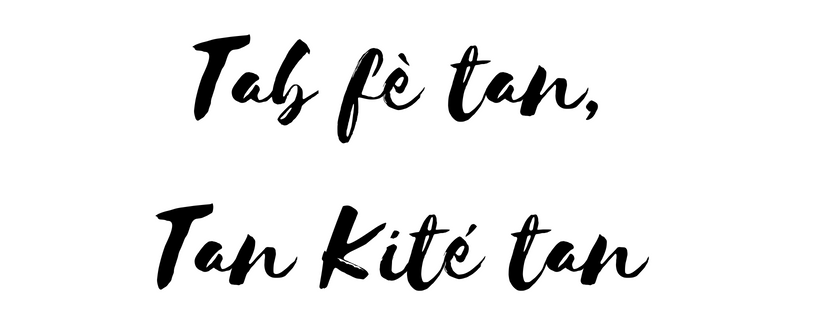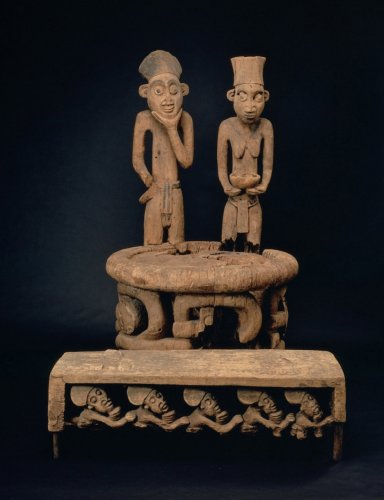It was, of course, predictable. Like every Sorcerer’s apprentice, Emmanuel Macron launched, along with the report he commissioned on the ” Refunds “African art and the announcement of the return” without delay of twenty-six works in Benin, a process he’s going to have a lot of trouble narrowing down, assuming he really wants to. The Minister of Culture of Senegal, Abdou Latif Coulibaly, said that Senegal now wanted the restitution by France of ” all works identified as those of Senegal “. ” if we have 10,000[parts identified as originating from Senegal], we wish to have the 10,000 ” (see for example here). The Savoy-Farr report, which was already not very subtle, is largely exceeded. The test is now: A work comes from Senegal, it must return. Today, the works of Senegal in Senegal, the works of Benin in Benin, the works of Mali in Mali… Tomorrow, certainly, the works of China in China, the work of Algeria in Algeria, and why not so French works in France! Go hop, all the Impressionists acquired by the United States, claim them since they were painted in France!
The worst nationalism is in motion, and it was launched by the deleterious action of the President of the French Republic. TheAfrican News agency teaches us that it is done, ” France to restore works of art in Cameroon which 11th King’s siege in the western region torn down by French soldiers in 1925 »… If the report suggests that this workill.) be returned quickly to Cameroon (a proposal, let us recall, which is only one element of a report which ‘ does not engage the President of the Republic As the Élysée said, the report does not specify that it would have been ” ripped off by French military ». The mode of acquisition of an ” indeterminate person ” is ” unknown “. In short, we can now tell anything: No decision has been taken (a decision that would otherwise be illegal in the current state of the law) but the work will still return to Cameroon… But in Cameroon, and even in Africa, not everyone seems to agree with the idea of these ‘ Refunds And they make arguments that would be worth the cries of Orfraie if we had used them. We therefore yield the floor to ” experts from African Museums ” who participated in a symposium held in Berlin on 22 November this year [1] : The suspended heritage. Colonialism yesterday and today ». According to the journalist Werner Bloch, who attended, ” a lot [of these experts] are very critical of the idea of a return […] Some denying them even categorically [2] » And therefore « si l’on rendait à un groupe ethniques ses objets d’art, le groupe ethnique voisin n’en serait peut-être pas si heureux [3] ». In short, some African experts believe that these restitutions can become a factor of contention in their country. Ces voix hostiles aux restitutions comme les conçoit Emmanuel Macron commencent fort heureusement à se faire entendre en France et en Europe de la part de personnes qui osent s’exprimer publiquement. This is the way to pay tribute to Jean-Jacques Aillagon, who expressed himself clearly in a tribune published in le Figaro, pointing out some evidence for those (few seemingly many) who really read the report Savoy-Farr : ” This report is rather a true manifesto. The place that is given to the contradiction or, at least, the development of reserved opinions, is extremely weak ». He calls on the Ministry of Culture to take responsibility (while the minister, again in his function and seemingly unaware of the issues, seems froze and silent), underlines in deploring the radicality of the recommendations of Report that ” will haveThe effect of emptying the African collections of the French museums and, first of all, those of the Museum of the quay Branly Stresses the importance of the notion of the inalienability of French public collections and the need for a ‘ dialogue with other European nations whose collections are derived from the same political history but also from the same cultural history Recalls the importance of a great idea: That of the existence of universal museums or constellations of museums-as is the case in Paris, with the Louvre, Orsay, Guimet, the quay Branly-Jacques Chirac-who build a universal discourse on the history of civilizations “, and concludes on a hope, well put to bad now:” that the categorical radicalism of a report that agitates public opinion, we prefer the courageous, measured and reasonable ways of enhanced cooperation with African countries ». It is a pity that this text by Jean-Jacques Aillagon is reserved only for subscribers of Figaro and cannot be accessible to all. It is no less unfortunate that, in the world this time, the interview given by Julien volper[4] and Yves-Bernard Debie[5] is also reserved for subscribers. These give a lot of simple common sense arguments that they had for some the opportunity to develop in a show of the Art Gallery which you can listen to the podcast here. Finally, even today, 29 November, the Academy of Fine Arts published a communiqué, albeit very cautious, where it asserts itself ” attached to the idea of a universal museum, invented in France, which allows the dialogue between cultures and civilizations “And hold” to reaffirm the intangible principle of the inalienability of national collections ». It also states that the inalienability of national collections, guaranteed by law, does not preclude [the]indispensable circulation of works of art (you can read the entire communiqué here). This chronicle, alas, will continue in the coming days…


Recent Comments